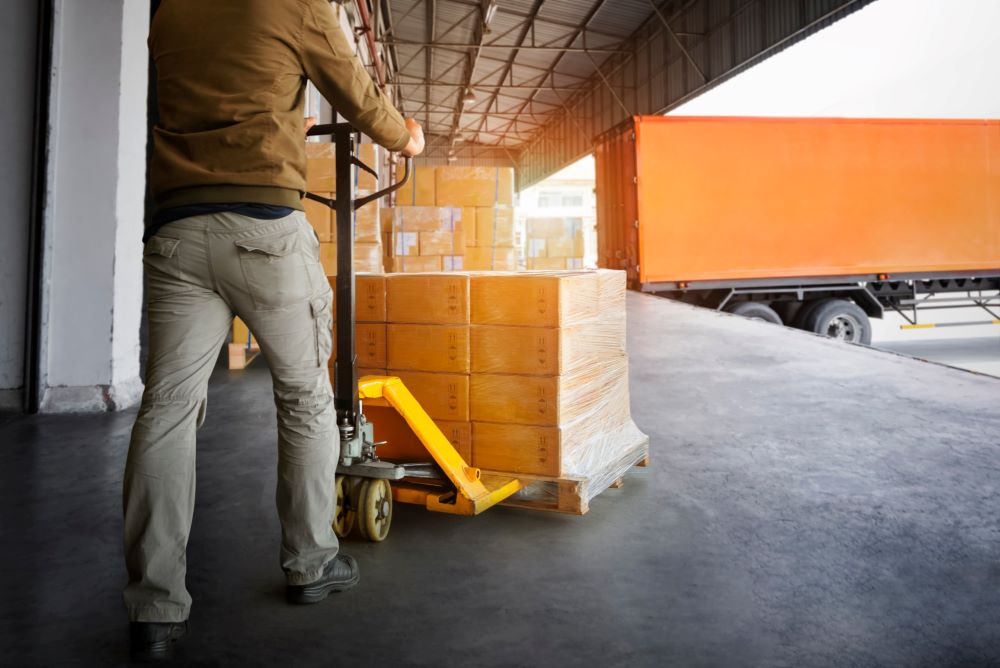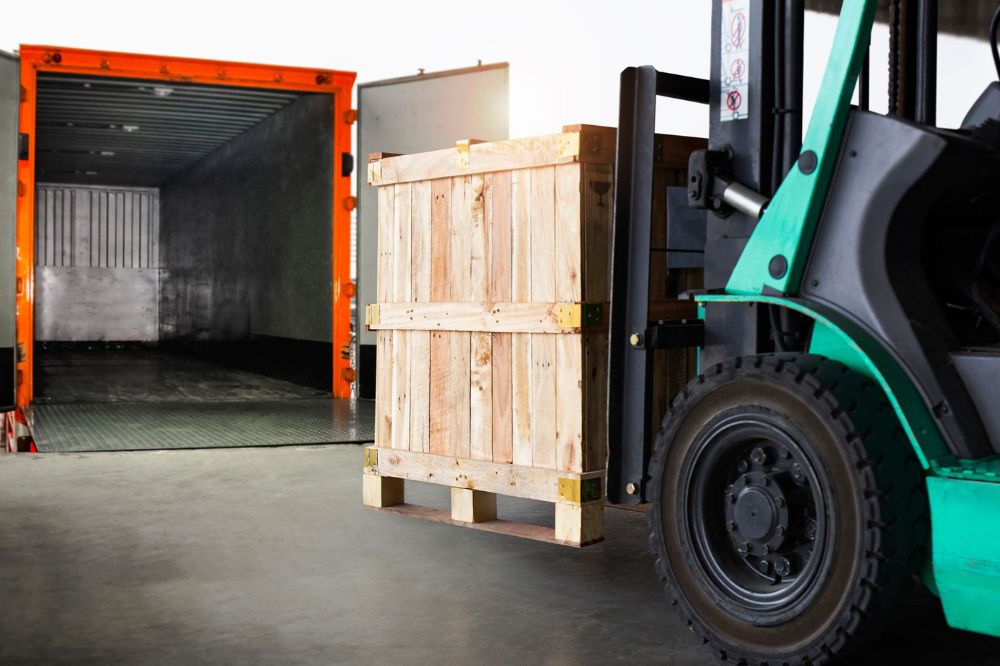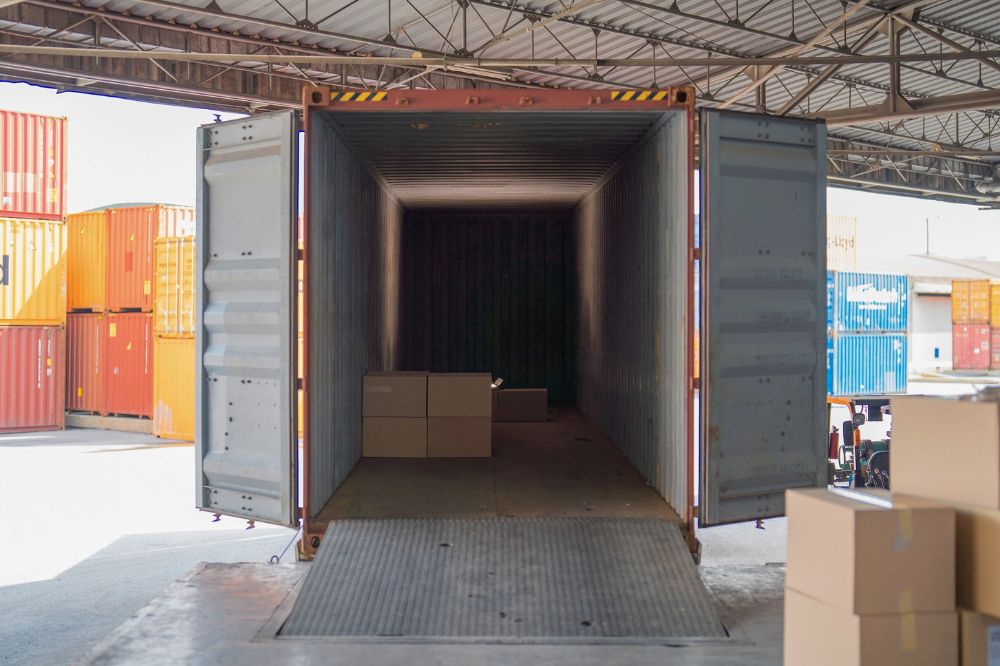Whether you’re a small-scale owner-operator or run a large trucking fleet, there are many different ways that you can plan freight deliveries. LTL freight is a popular option to keep in mind.
In many cases, shipments don’t require an entire truckload. Instead of wasting empty space and driving empty miles, LTL freight is an option to help trucking businesses operate more efficiently.
In this guide, we’ll explore exactly what LTL freight is, how it works, and when trucking operators should consider this approach.
What is LTL Freight?
LTL Freight stands for “Less-Than-Truckload” freight. It’s a shipping method used when the amount of goods a business needs to transport doesn’t require a full truck.
Instead of renting an entire truck, multiple shippers share the same truck space. Each shipper pays only for the portion of the truck they use, which makes it more cost-effective for smaller shipments and more optimized loads.
LTL Freight typically involves shipments larger than parcel deliveries but smaller than what would fill a full truck. It’s ideal for businesses with shipments that weigh between 150 and 15,000 pounds.
Benefits of LTL Freight
For the right kind of shipments, LTL freight offers some clear advantages.
LTL Cost Efficiency
The most obvious benefit of LTL freight is that it’s a far more cost-efficient shipping method than using an entire truck that isn’t full.
Both truck drivers and trucking businesses can experience these cost savings.

For Small to Medium Businesses
LTL freight can help small and medium businesses save money if they don’t have enough products to fill an entire truck.
In traditional shipping, businesses might have to pay for an entire truck’s capacity, even if their goods only take up a fraction of the space. LTL freight allows them to share the truck space with other shippers, meaning they only pay for the portion they use.
Beyond this, being able to ship smaller loads more frequently helps businesses manage inventory levels better and respond more quickly to customer demands. All this without having the high costs of full truckload shipping.
For Truck Drivers
Instead of dedicating a truck to a single shipment, drivers can combine several smaller shipments from different customers into one trip. This maximizes the truck’s capacity, reducing the number of empty miles driven.
Fewer empty miles mean lower fuel costs and less wear and tear on the vehicle, which translates into higher overall efficiency and profitability for drivers.
LTL freight also allows carriers to offer more frequent routes and services, which can attract more customers and fill up more trucks.

Reduced Environmental Impact
LTL freight plays an important role in reducing the environmental impact of the trucking industry.
When multiple shipments are consolidated into a single truck, there is a reduced need for trucks to transport goods. This means lower fuel consumption, which decreases greenhouse gas emissions.
Consolidating truckloads also minimizes the overall miles driven by trucks, which is important as the industry looks for ways to become more sustainable.
Increased Flexibility and Accessibility
LTL freight offers a high level of flexibility and accessibility that can be particularly useful for businesses with varying shipping needs.
Because LTL carriers handle shipments from multiple customers, they often have a broader network of routes and services compared to full truckload carriers. These extensive networks allow businesses to reach more destinations, including remote or less-frequented areas, with no need to fill an entire truck.
LTL carriers also offer a wider range of service options, such as expedited shipping, time-specific deliveries, and residential pickups and drop-offs.
Having flexibility like this enables businesses to meet specific delivery requirements, such as tight deadlines or special handling needs. These specifics aren’t always possible with full truckload shipping.
Improved Inventory Management
LTL freight means businesses can ship smaller quantities more frequently, which is a great way to improve inventory management.
Instead of waiting to accumulate enough products to fill a truck, businesses can ship goods as they’re ready. This reduces storage costs and the risk of overstocking or under-stocking.
Improved Service Options
LTL carriers often provide extra services that can be tailored to the specific needs of businesses. These services might include things like liftgate service, inside delivery, freeze protection for temperature-sensitive goods, or specialized handling for fragile items.
These options make LTL freight a versatile solution that can accommodate a wide range of shipping requirements.
Risk Mitigation
With LTL freight, businesses can spread out their shipments rather than relying on a single large load.
This diversification reduces the risk associated with potential shipping delays, damage, or loss. If one shipment faces an issue, it only affects a small portion of the total goods being transported, which would minimize the impact on the business.

Access to a Broad Carrier Network
LTL freight providers often operate within a network of terminals and hubs, similar to airlines.
This hub-and-spoke model allows for more efficient routing and delivery, even to multiple destinations. Businesses benefit from this extensive network, as it increases the chances of finding timely and cost-effective shipping solutions.
LTL Drawbacks
While LTL freight is a smart model for certain trucking requirements, it also comes with some disadvantages.
Longer Transit Times
One of the main drawbacks of LTL freight is that it typically involves longer transit times compared to full truckload (FTL) shipping.
Since LTL shipments are consolidated with other loads, the truck will probably make more stops along the way to pick up or drop off goods at different locations. Each extra stop adds time to the overall delivery process.
LTL shipments also often pass through several distribution terminals or hubs before reaching their final destination, which can also cause delays.
More Planning
LTL freight requires more planning and coordination than full truckload shipping. Because shipments are combined with those from other shippers, it’s important to plan the timing and logistics of the pickup and delivery meticulously to ensure everything runs smoothly.
Businesses need to provide accurate weight and dimension measurements for their shipments, as well as clearly label their goods to avoid confusion or delays while everything is consolidated.
Businesses may also need to coordinate with LTL carriers regarding specific delivery windows, special handling requirements, or other considerations. This creates an extra level of planning, which can be time-consuming and require plenty of extra attention to detail.

Increased Damage Risk
Since LTL shipments involve handling and transferring goods multiple times, such as when loading and unloading at various terminals, there’s a higher chance that items could be damaged in the process.
The more a shipment is handled, the greater the risk of it being dropped, mishandled, or exposed to bad conditions. And because LTL shipments share space with other goods, there’s a possibility that items could be stacked or placed in ways that aren’t ideal for their protection.
When Should You Choose LTL Over FTL?
Choosing between LTL and Full Truckload shipping should come down to a couple of factors, such as the size of your shipment, your budget, and your delivery requirements.
Here are some scenarios where LTL is the better choice.
Smaller Shipments
If your cargo is relatively small – typically weighing between 150 and 15,000 pounds and taking up less than 12 feet of trailer space. LTL is more cost-effective for small shipments.
Cost Efficiency
If keeping shipping costs low is a priority, LTL is often the better choice. In LTL shipping, you can ship more frequently without incurring the higher costs associated with FTL.
No Urgent Delivery Deadlines
LTL shipping is best when your delivery isn’t time-sensitive.
Because LTL shipments are combined with others and may make several stops along the way, they generally take longer to reach their destination compared to FTL. If your delivery schedule is flexible and you can afford a longer transit time, LTL is a more economical choice.

Flexible Shipping Needs
LTL offers more flexibility when it comes to shipping options. If your shipment has specific needs, like liftgate service, residential delivery, or inside delivery, LTL carriers often provide these additional services.
FTL shipping is more straightforward, moving a full load from point A to point B without the additional customization that LTL can offer.
Lower Risk Cargo
If your shipment isn’t highly valuable or fragile, LTL is a good option.
Since LTL involves multiple stops and transfers, there’s a higher risk of damage compared to FTL. However, if your goods are durable or not particularly time-sensitive, this may not be a major concern, which makes LTL a practical choice.
Multiple Destinations
LTL is a great option if your shipment needs to go to multiple destinations.
With LTL, you can send smaller quantities to various locations without paying for a separate truck for each destination. This can be a highly efficient and cost-effective way to manage distribution to different sites.
Final Thoughts
Implementing LTL freight can be an excellent way for businesses to ship smaller goods more efficiently. If you run a trucking business, then offering LTL freight services can also be a great way to open up new business opportunities and delivery routes. Whether you own a box truck or a large semi-truck, LTL is a useful way to fill up empty space and ensure you get more out of each delivery mile you drive.
If you’re considering starting a trucking business, then keep LTL in mind as an option to keep your business flexible. Of course, this all starts with having the right truck to manage LTL freight in the first place.
Contact Mission Financial Services for the easiest and most convenient way to secure financing for your new commercial semi-truck.



